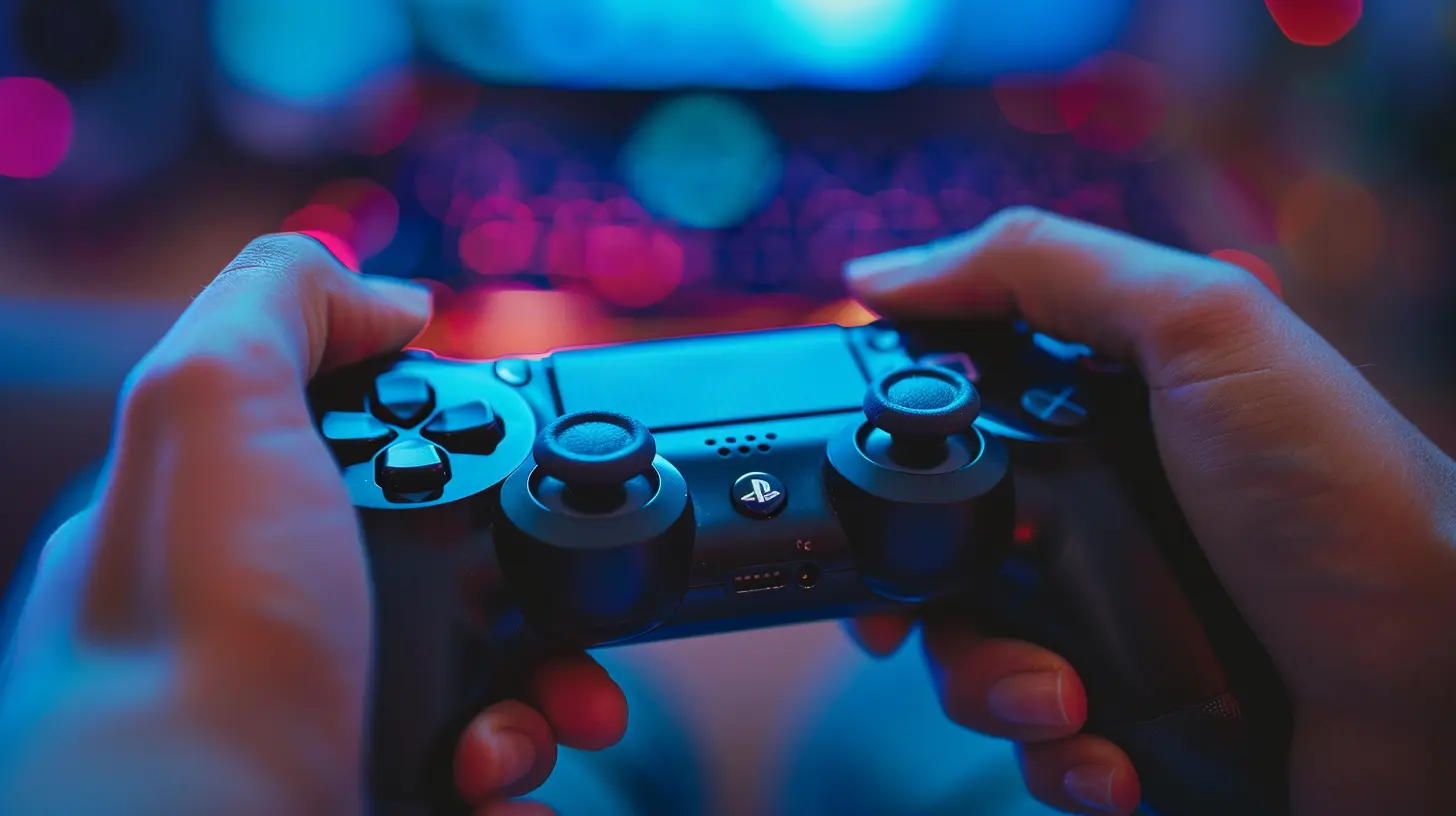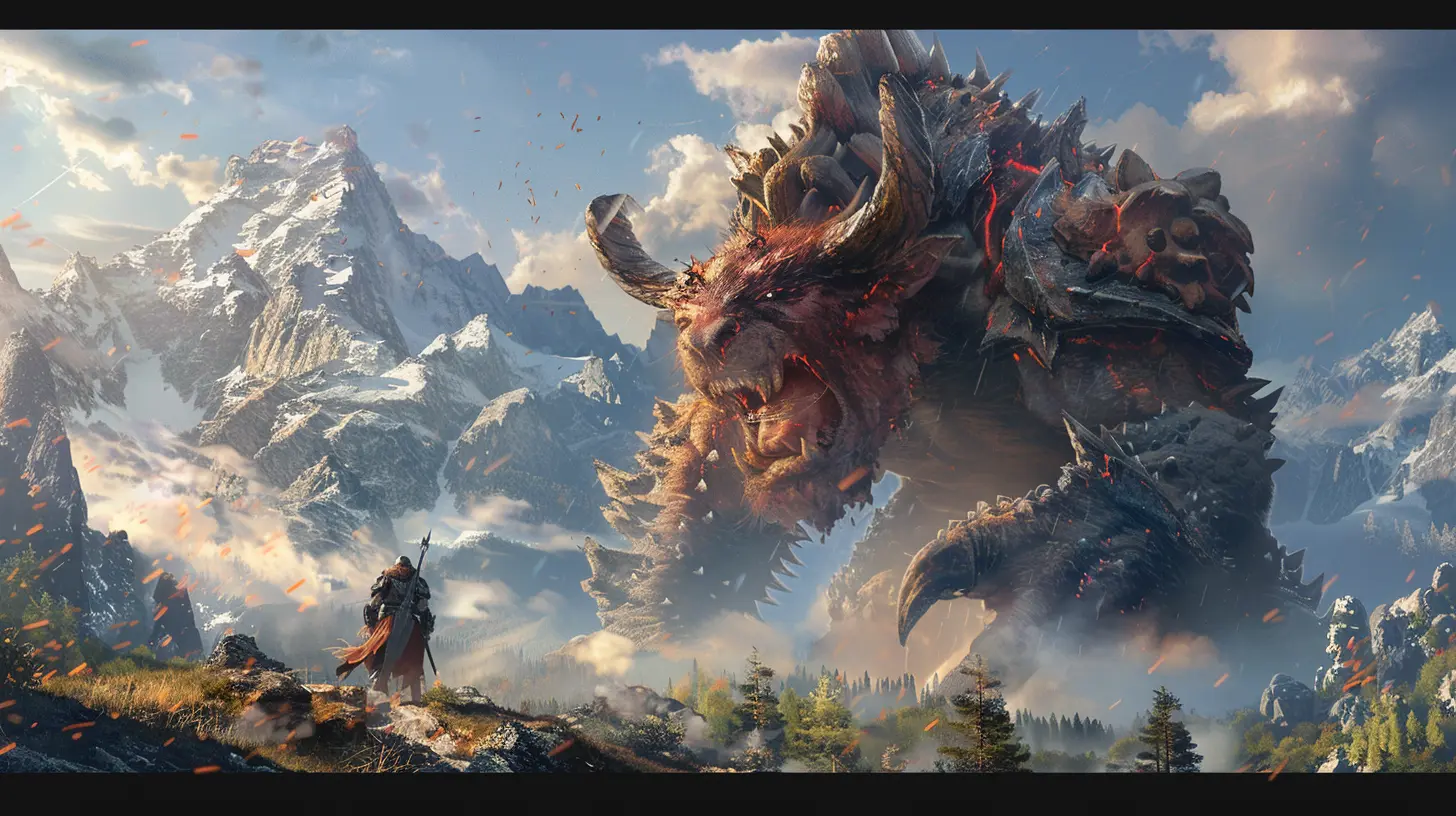How Multiplayer Achievements Shape Online Gaming Behavior
26 September 2025
Gaming has come a long way from the days of pixelated characters and high scores at the local arcade. Today, the thrill of online multiplayer experiences is what keeps millions of players logging in every single day. But here’s the twist—it's not just about shooting enemies, scoring goals, or leading your team to victory anymore. There's something more subtle (yet incredibly powerful) shaping how people play... multiplayer achievements.
Yeah, those little digital trophies and badges you've probably chased at 2 AM? They’re doing more to us than we might think.
In this article, we're diving deep into how multiplayer achievements shape online gaming behavior—how they drive us, change us, and sometimes even mess with us. Ready? Let’s get into it.
What Exactly Are Multiplayer Achievements?
Before we go all philosophical on you, let’s define what we’re talking about. Multiplayer achievements are in-game rewards given for completing specific tasks or reaching certain milestones in online multiplayer games. Think of them as virtual pats on the back, like:- Winning 100 matches in ranked mode
- Reviving 50 teammates
- Completing a mission without dying
- Getting a 10-kill streak
They can be purely cosmetic (a fancy badge, title, or skin), or come with actual in-game advantages (like unlocking new weapons or characters). They're designed to reward players for skill, persistence, or even just goofy behavior sometimes.
But here’s the kicker—they’re not just rewards; they’re psychological triggers.
The Psychology Behind Achievements
Ever notice how you suddenly care about using a sniper rifle, even though you hate using it—just because there's an achievement tied to it? That’s behavioral conditioning in action. Game developers are low-key psychologists using a recipe of motivation and reward to influence how we play.1. Dopamine, Baby!
Achievements trigger the brain’s reward system. When you unlock one, your brain releases dopamine, the same chemical that hits when you eat chocolate or hear your favorite song. It feels good—real good. And your brain wants more of it. So, what do you do? You keep playing. You chase more achievements. It’s the good ol’ carrot-on-a-stick trick.2. Completionists Unite!
If you’re someone who can’t stand seeing that one missing trophy in your list—congrats, you’re a completionist. Multiplayer achievements feed this need to “finish” things, turning casual players into hardcore grinders. You’ll find yourself playing game modes you never bothered with before, just to check those boxes.
The Social Pressure of Online Bragging Rights
Let’s be honest. Sometimes we don’t grind achievements just for ourselves—we do it to flex.1. Public Profiles, Private Obsession
In most modern multiplayer games (think Call of Duty, Apex Legends, Overwatch), your profile shows off your stats and achievements. That means everyone can see just how many wins you’ve racked up or what rare badge you've earned.That little “Ultra-Rare Victory” icon? It’s basically the gaming version of a Rolex. It says, “Yeah, I’ve been here. I’ve done that. And I’m better than you.”
This kind of visibility fuels competition. Whether it’s to impress friends or intimidate foes, achievements add a social layer to performance.
2. FOMO Hits Hard
Ever see someone with a limited-time achievement you missed out on? That “Fear of Missing Out” can be brutal. Developers know this and often time-lock achievements, encouraging players to jump in before they’re gone forever. That’s how games keep you coming back even when you’ve thought of quitting.
How Achievements Change the Way We Play
It’s not all sunshine and glitter-sticker rewards, though. Achievements can subtly reshape the way we approach the game itself—for better or worse.1. Shifting Player Behavior
Ever notice teammates doing weird stuff just to get an achievement? Like someone in a shooter trying to melee the boss instead of shooting it—because there's a trophy for that? Yeah, achievements can push players to act against their best interest... and sometimes the team's.This actually changes gameplay at a fundamental level. It’s not just about “winning” anymore; it’s about how to win in a way that unlocks that next achievement.
2. Encouraging Teamwork (Sometimes)
Not all achievements are selfish. Some require real coordination and camaraderie—like reviving teammates 100 times or winning as a full squad. These encourage players to play together and support each other.It’s a clever way to promote positive behavior in what can sometimes be toxic multiplayer spaces.
3. ...Or Creating Toxicity
Yeah, it cuts both ways.Some players get so obsessed with achievements that they ignore the actual objective. Think of that guy who's camping in the corner for 10 headshots with a crossbow while your team loses the match.
Achievements can encourage trolling, stat-padding, and sometimes even hacking. Sad, but true.
Multiplayer Achievements as Status Symbols
It’s kind of wild when you think about it: these virtual tokens can carry actual social weight.1. E-Peacocking
Ever heard of peacocking? It's when animals display their flashiest features to attract attention. Gamers do that too—except with rare titles, exclusive weapon skins, or elite ranks."Unobtainable" titles from past seasons or impossible challenge completions become digital trophies. They tell a story. “I was there.” “I did the impossible.” “Bow before me, noob.”
It’s not just about skill; it’s about identity.
2. Building Your In-Game Reputation
In games like World of Warcraft, Destiny, or even Fortnite, certain achievements establish your rep. People will literally not group with you unless you’ve completed certain milestones. Got the “Flawless Raid” badge? You’re someone to trust. Don’t have it? You’ll struggle to get a team.Achievements often gatekeep high-level content or elite communities. They become a passport in the digital world.
The Devs Know What They're Doing
Game developers don’t just throw achievements in randomly. There’s a strategy behind it.1. Increasing Player Retention
Want players to keep playing? Dangle a few hard-to-get achievements in front of them. Many games have "long grind" achievements that can take weeks or even months. It keeps players coming back and keeps the game’s servers alive longer.2. Directing Traffic to Underrated Game Modes
Got a game mode no one plays? Slap an achievement on it. Boom—suddenly it’s full of players again.Achievements are often used as stealth marketing tools. Developers use them to nudge you toward content you might otherwise ignore.
What Players Really Think About Achievements
Players are divided. Some love achievements. Some absolutely hate them.The Lovers
- They love the extra challenges- They feel more motivated to explore every inch of the game
- Achievements keep the game alive longer
- It’s a fun way to measure progress
The Haters
- They're just artificial padding- They force players to play in weird, unfun ways
- The grind kills the fun
- They can create toxicity in multiplayer matches
There’s no right or wrong side here—it all depends on what kind of gamer you are.
Do Achievements Actually Make Us Better Players?
That’s a loaded question. Achievements can push you to try new things and do them well. They can improve your skillset, your knowledge of the game's mechanics, and even your teamwork.But they can also encourage bad habits—like playing selfishly, grinding instead of having fun, or chasing meaningless goals just for bragging rights.
So… do they make us better? Maybe. But they definitely make us different.
Final Thoughts: The Power of Pixels
Multiplayer achievements are more than just decorations on our profiles. They motivate us, frustrate us, divide us, and unify us. They change how we play, who we play with, and even why we play.Like it or not, they’ve become a central part of the online gaming experience. And as games continue to evolve, you can bet achievements will evolve too—getting slicker, smarter, and even more addictive.
So the next time you find yourself sprinting into enemy territory armed with only a pistol and a dream—just to snag that last elusive badge—know this: you’re not alone. You’re part of a global tribe, driven by pixels, pride, and the sweet, sweet taste of virtual victory.
Game on, achievement hunters.
all images in this post were generated using AI tools
Category:
Gaming AchievementsAuthor:

Greyson McVeigh
Discussion
rate this article
1 comments
Zephyrion Perez
Multiplayer achievements not only enhance competition but also foster collaboration and community. They inspire us to push our limits, connect with others, and create unforgettable gaming memories. Keep playing and thriving!
October 19, 2025 at 2:35 AM

Greyson McVeigh
Absolutely! Multiplayer achievements not only drive competition but also strengthen community bonds, encouraging collaboration and memorable experiences in gaming. Thank you for your insights!


